Globe & Mail Article: National Day for Truth and Reconciliation
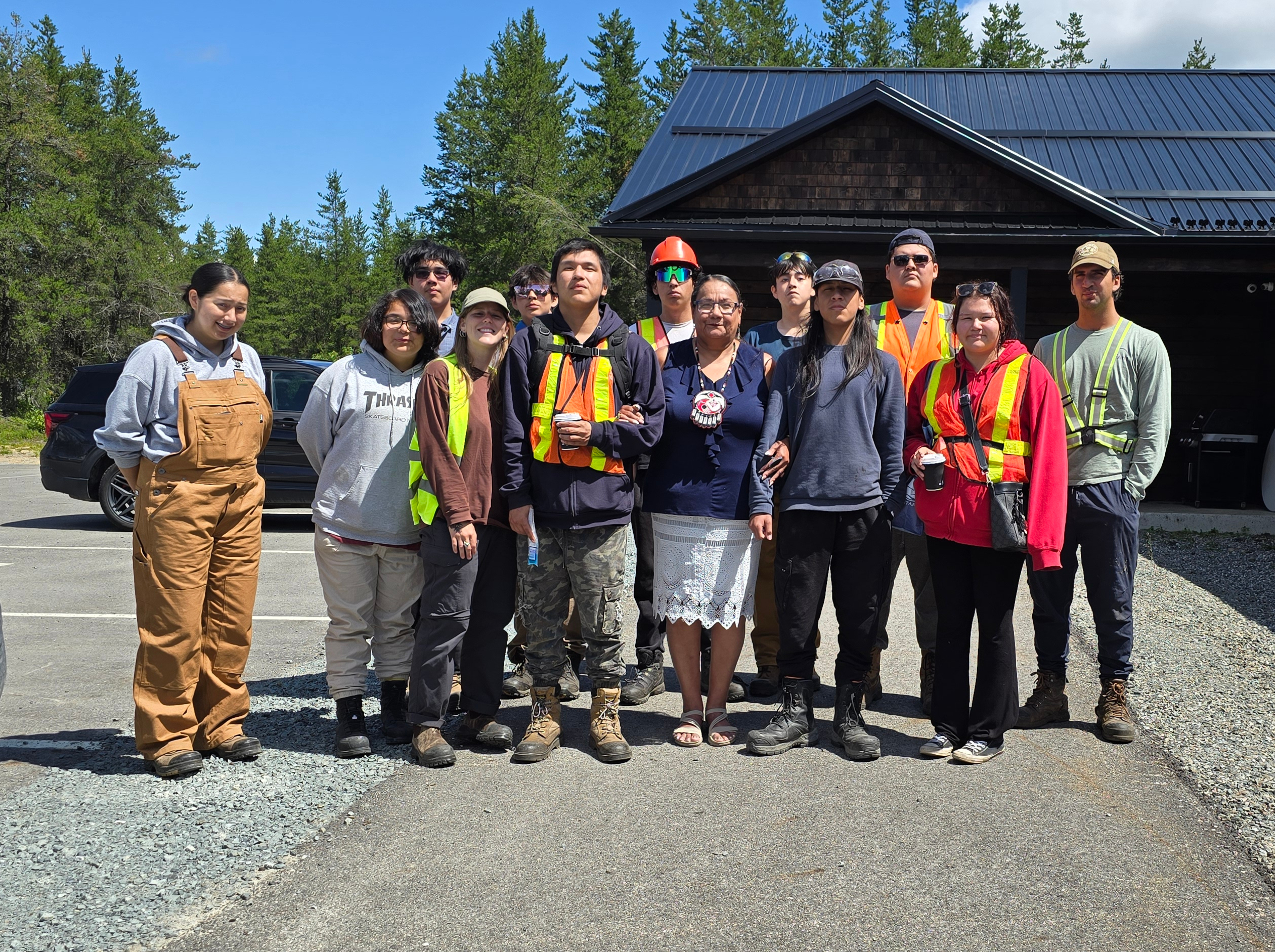
Building stronger futures together – Reflections and inspiration for the National Day for Truth and Reconciliation
Written by Andrea Josic
As featured in the Globe & Mail on September 30, 2025
In late August in northeastern Ontario, fall was well on nature’s doorstep: the perfect time for reaping the harvest at Apitipi Anicinapek Nation’s Leading Cloud Gardens. Several Indigenous youth, dressed in layers convenient for outdoor work, were busy supporting their community with the tasks of season’s turn – a continuation of activities honed during summer break from school, when they were diligently planting seeds, fertilizing trees, building greenhouse shelves and harvesting crops.
Across the province, Indigenous youth attended summer camps to immerse themselves in a variety of cultural skills. Beyond growing food, some spent time at forestry camps learning about sustainable forestry, including how to replant trees, to contribute to the forest’s regenerative cycle. These youth initiatives have been created and supported by Apitipi Anicinapek Nation, which offers many services across several industries and departments like education, family support, technology and health care.
“Every project we take on is guided by Indigenous values and designed to fit into a circular and cultural economy,” says Jason Wong, economic development officer (EDO) at Apitipi Anicinapek Nation. “When youth see their hands in the work – whether it’s planting, harvesting or building – they develop pride and responsibility. That sense of ownership ensures that gardens, and all community projects, are cared for long into the future.”
When Wong began serving with Apitipi Anicinapek Nation in 2020, the administration had just over 20 employees. His focus was on strengthening the Nation’s economic foundation, creating opportunities for future generations and positioning the community for sustainable growth and funding partnerships.
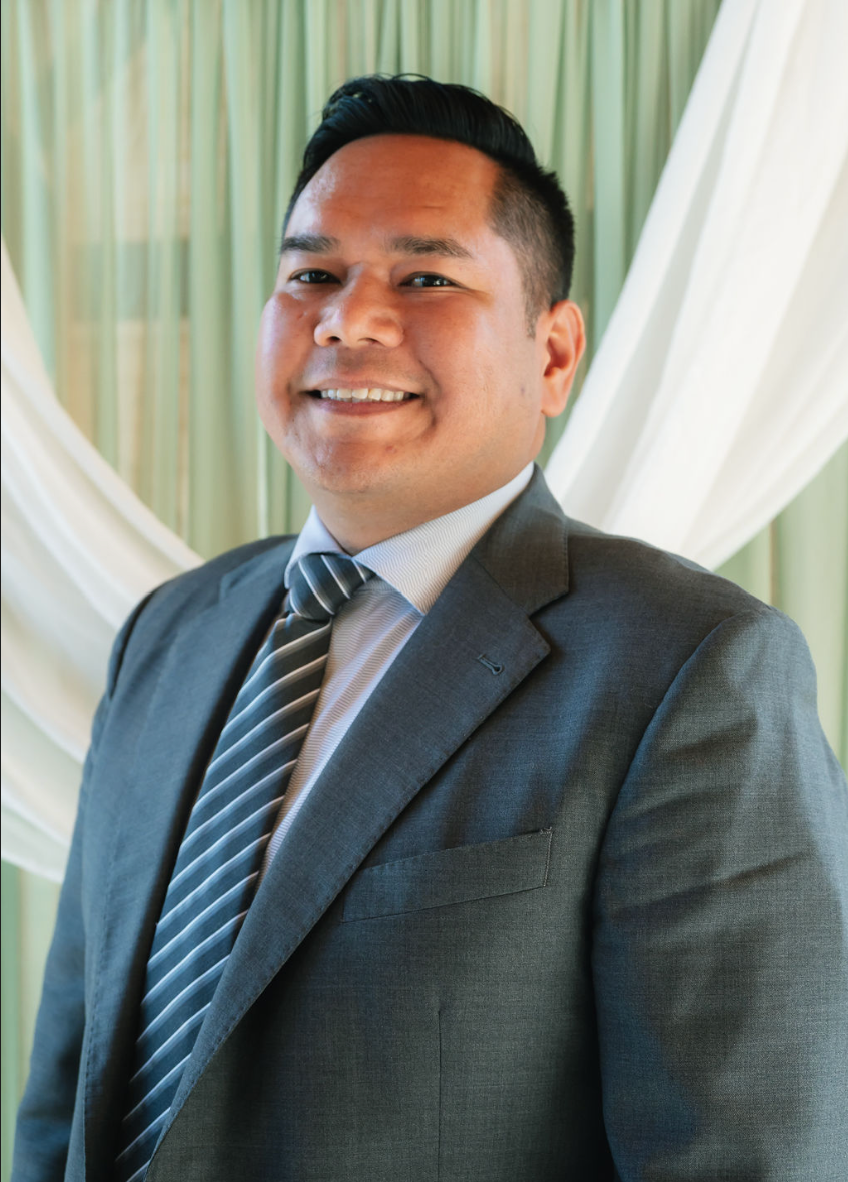
Jason Wong, Economic Development Officer (EDO)
The guiding principle for this work is Indigenous self-government, the inherent right of Indigenous Peoples to govern themselves and their communities in alignment with traditional practices and connections to the land. When youth and other community members are encouraged to participate in their communities, they are more likely to deepen their relationship to their culture and positively influence their peers and generations to come.
Today, the Apitipi Anicinapek Nation team has grown to over 100 employees, each contributing to projects that reflect Indigenous values and community priorities. From the objective to develop each team member’s skill set and, in turn, the organization, Wong sought expertise from Catalyste+, a Canadian economic development organization that offers professional advisory services across multiple industries.
Cultural Awareness Programming
Closing his eyes in the quiet, thick forests near Whitecourt, Alberta, his ancestral lands, and taking a deep breath of fresh, damp pine, Bear Mustus reflects on a healing journey that began several years ago. By reconnecting with nature and creator, he realized the Earth holds the same power for others.
“I took it upon myself to repatriate those lands and bring back cultural awareness programming,” he says, “because I started to find that when you connect with the fire, when you spend time on the land, when you listen to the birds, when you pay attention to the bees and the wind, you become grounded. There’s a tremendous opportunity here to embrace natural law.”
In 2021, Mustus started Whitecourt ISGA Tourism Association (WITA) to offer immersive cultural experiences for participants to learn about Indigenous culture and ways of life. While WITA was founded out of his desire to reconnect himself and Indigenous people with their lands, non-Indigenous participants learned the reality of lost traditions.
Mustus believes true reconciliation is education. He recalls how some participants were shocked to learn how thorough and mindful practices are – like the process of utilizing each animal part after hunting – a common Indigenous practice that shows respect for the Earth’s offerings.
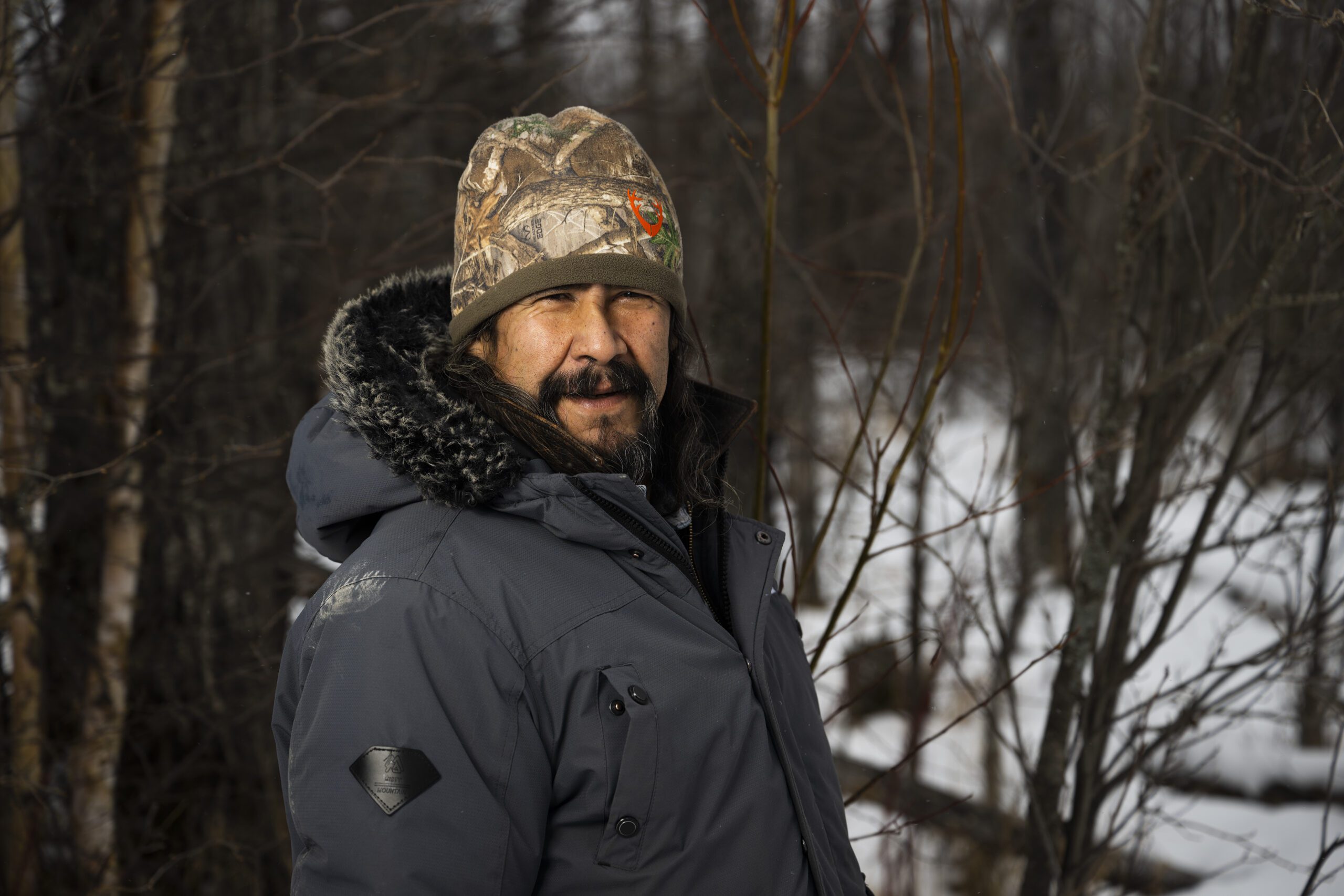
Bear Mustus started Whitecourt ISGA Tourism Association (WITA). Photo by: Gavin John.
“It’s a matter of having acknowledgment about our heritage. The non-Indigenous community, they’re the ones [who] have to reconcile with our history,” he explains. “We give [them] the true story: that experiences of Indigenous land-based teachings are wholesome; they’re natural; they’re healthy.”
In 1876, the Indian Act dismantled traditional governance systems and imposed strict regulations on Indigenous Peoples’ lives. This was just one effect of colonization that led to lasting systemic trauma for Indigenous communities – a forcible disconnection from their culture and way of life. The United Nations Declaration on the Rights of Indigenous Peoples set standards for the well-being of Indigenous Peoples across the world, outlining that Indigenous communities have the right to exercise self-determination and self-government based on their cultural practices.
Planting Seeds for the Future
Seeing the opportunity to exponentially grow Apitipi Anicinapek Nation, Wong wanted each staff member to be a leader in their own way. When he partnered with Catalyste+ on an assignment, he specified that he didn’t want to be the only one learning how to write proposals and secure funding; he wanted everyone to learn and succeed.
“I was able to support other departments to build capacity and focus on their projects,” says Wong. “It’s about empowering people to do more.”
Wong established a new role to strengthen the Nation’s commitment to food security and sovereignty, hiring Nation member Kara Tremblay as Apitipi Anicinapek Nation’s food security champion in 2023. Tremblay now leads the Food Sovereignty Program and has become known for her belief that “every youth hired is a seed planted in our future.”
Over 50 years, Catalyste+ has completed 1,300 assignments with nearly 700 partners in Indigenous communities across Canada, with each assignment tailored to the client’s specific needs and goals. Funding for Catalyste+’s Indigenous & Northern Services (INS) department comes from several national agencies, like Indigenous Services Canada (ISC) – and the department works with Indigenous businesses, governments and community organizations to advance inclusive economic growth. The Catalyste+ Reconciliation Action Plan, released in June 2024, outlines 43 actions that respond to the Truth and Reconciliation Commission’s 92nd call to action. The organization champions Indigenous economic independence and self-empowerment through commitments to sustainable, longterm solutions.
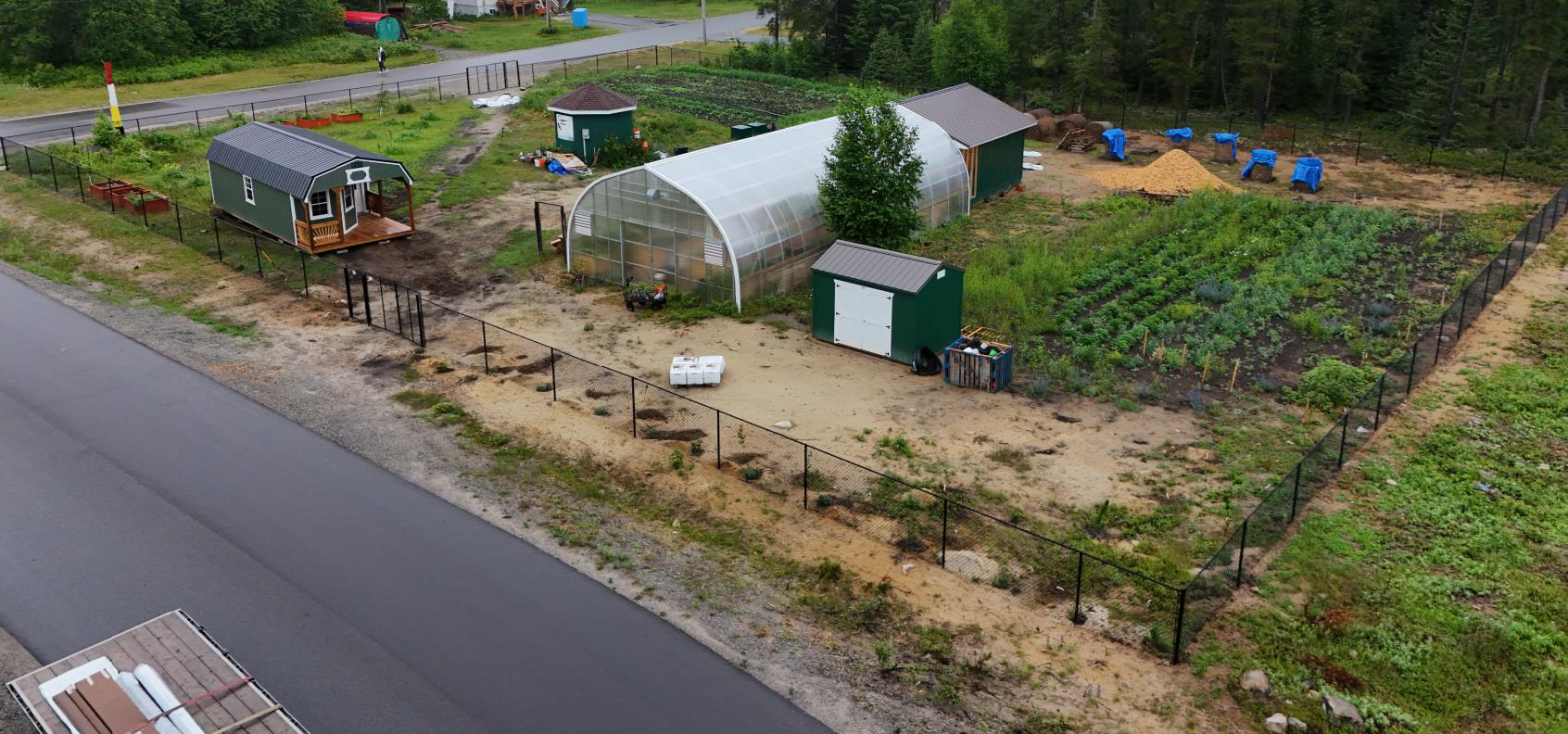
Youth initiatives at Apitipi Anicinapek Nation’s Leading Cloud Gardens allow participants to support their community with the tasks of season’s turn. Photo by: Apitipi Anicinapek Nation.
Partnering for Meaningful Prosperity
Anishinabek Nation is a political advocate for its 39-member First Nations across Ontario, from Algonquins of Pikwàkanagàn in the east, Aamjiwnaang First Nation in the south, and Long Lake #58 First Nation in the north. The organization is dedicated to traditional governance with a leadership of a grand council chief, deputy grand council chief, and four regional chiefs to support member First Nations in areas like health, education, technology and business development.
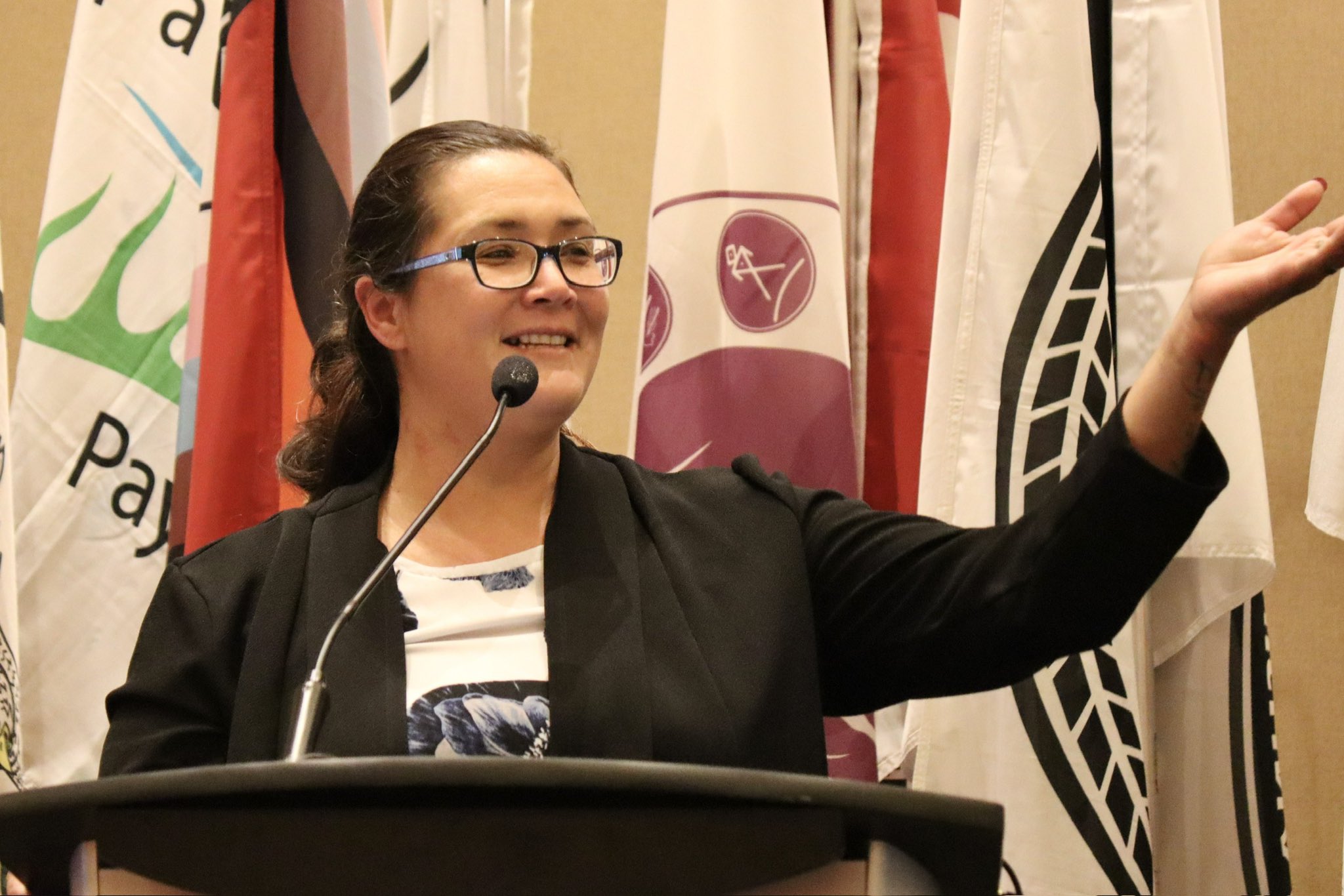
Anishinabek Nation Grand Council Chief Linda Debassige at the Anishinabek Nation Economic Development Opportunities Forum 2024.
One of the many focuses within the Anishinabek Nation is supporting the technicians who work for the First Nations by selecting staff members who are best equipped to provide technical information, tools and resources. In economic development, this could span mining, forestry, energy, retail and many more areas.
In 2024, the Anishinabek Nation published its re-developed economic blueprint, a roadmap for economic development organizations. The blueprint analyzes dozens of industries and offers suggestions on how First Nations can create economic prosperity through the principles of sovereignty, Nation-building and reclamation. Developed from the existing 2008 blueprint, this report now acknowledges the significant impact of systemic traumas and barriers on First Nation prosperity.
“First Nations across Turtle Island have rich histories, diverse skill sets, and unique needs. The Anishinabek Nation economic blueprint aims to meet First Nations where they are at individually and provides them with pathways to success that help build their community and our nation as a whole,” states Anishinabek Nation Grand Council Chief Linda Debassige. “Nation-building begins at the community level. By investing in the skills and voices of our people, we can ensure lasting and meaningful prosperity for all.”
Ultimately, the priority is to increase the capacity of leadership, professionals and businesses. Whether it’s sending a newsletter or establishing a key government connection that leads to a significant funding opportunity for First Nations, every action helps. The long-term goal is that every First Nation has a sustainable and self-sufficient economy.
Many partners have long-term relationships with Catalyste+, with each assignment focusing on a new project or goal. Apitipi Anicinapek Nation, Anishinabek Nation and WITA have completed four, five and 15 assignments respectively. Mustus says that all the work he’s done with Catalyste+ advisers has brought him to “a place of comfort.”

This photo is from Bear Mustus, WITA in 2023. Photo by: Gavin John.
Looking forward, he is also prioritizing bringing back traditional governance, which, for him, allows leadership to show up through a deep connection to spirit. His next steps are expanding his business and learning how to secure more funding so that he can continue sharing – and showing Indigenous gifts and teachings to others.
“I’m doing it because I want future generations to have access to the same knowledge that I have. I want future generations to have economic benefit,” says Mustus. “Everything’s going to fall back into place. It might not happen in my time, but it’s going to happen – because traditional governance, our values, they still exist today.”
Donate Today
Your donation helps connect businesses, governments and community organizations with the skills and support to achieve their goals and contribute to inclusive growth. When you give to Catalyste+, you empower women and drive progress in harmony with nature. You’re helping people get what they need to improve their lives and build strong communities.